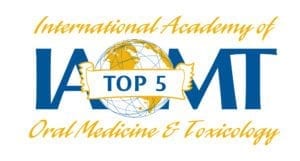
Top Five Reasons to Use an IAOMT Dentist
Because of who we are
The IAOMT, a 501(c)(3) non-profit, is a trusted academy of allied professionals providing resources to support new levels of integrity and safety in health care. We are also a global network of over 800 dentists, health professionals, and scientists who share the principles of science-based biological dentistry with each other, our communities, and the world. In other words, we have been working together since our inception in 1984 to help establish the integral relation of the oral cavity to the rest of the body and overall wellness, thereby promoting public health and the concept of integrative medicine.
Because of what we do…
We encourage the practice of mercury-free, mercury-safe, and biological dentistry and aim to help others understand what these terms actually mean in clinical application:
- “Mercury-free” is a term with a wide-range of implications, but it typically refers to dental practices that do not place dental mercury amalgam fillings.
- “Mercury-safe” typically refers to dental practices that use rigorous safety measures to limit or prevent mercury exposure, such as in the case of removing previously existing dental mercury amalgam fillings and replacing them with non-mercury alternatives.
- “Biological” or “Biocompatible” dentistry typically refers to dental practices that utilize mercury-free and mercury-safe dentistry while also considering the impact of dental conditions, devices, and treatments on oral and systemic health, including the biocompatibility of dental materials and techniques.
Biological dentistry is not a separate, recognized specialty of dentistry, but it is a thought process and an attitude that can apply to all facets of dental practice and to health care in general: to always seek the safest, least toxic way to accomplish the goals of modern dentistry and of contemporary health care. The IAOMT encourages the practice of biological dentistry.
Because of how we do it…
We achieve our mission of protecting public health by funding and promoting relevant research, accumulating and disseminating scientific information, investigating and promoting non-invasive scientifically valid therapies, and educating medical professionals, policy makers, and the general public. In this regard, IAOMT members have been expert witnesses about dental products and practices before the US Congress, the US Food and Drug Administration (FDA), Health Canada, the Philippines Department of Health, the European Commission Scientific Committee on Emerging and Newly Identified Health Risks, and other government bodies around the globe. The IAOMT is an accredited member of the United Nations Environment Programme’s Global Mercury Partnership, which led to the 2013 Minamata Convention on Mercury. We also continually offer outreach programs to dentists, healthcare professionals, the public, and others.
Because of our training and education…
All IAOMT member dentists are offered the opportunity to further their knowledge of biological dentistry by participating in workshops, online learning, conferences, and certifications. For example, dentists who are SMART certified have received training in amalgam removal that involves learning about the application of the rigorous safety measures, including the utilization of specific equipment. As another example, dentists who have achieved Accreditation from the IAOMT have been trained and tested in the comprehensive application of biological dentistry, including units on Safe Removal of Amalgam Fillings, Biocompatibility, Heavy Metal Detoxification, Fluoride Harms, Biological Periodontal Therapy, and Root Canal Hazards.
Because of our recognition that each patient is unique…
Biocompatibility involves understanding that each patient is unique in their needs and their potential health harms and benefits. Additionally, the IAOMT promotes materials reiterating the fact that specific sub-populations and susceptible groups require special attention, such as pregnant women, women of child-bearing age, children, and individuals with other adverse health conditions such as allergies, kidney problems, and multiple sclerosis.


